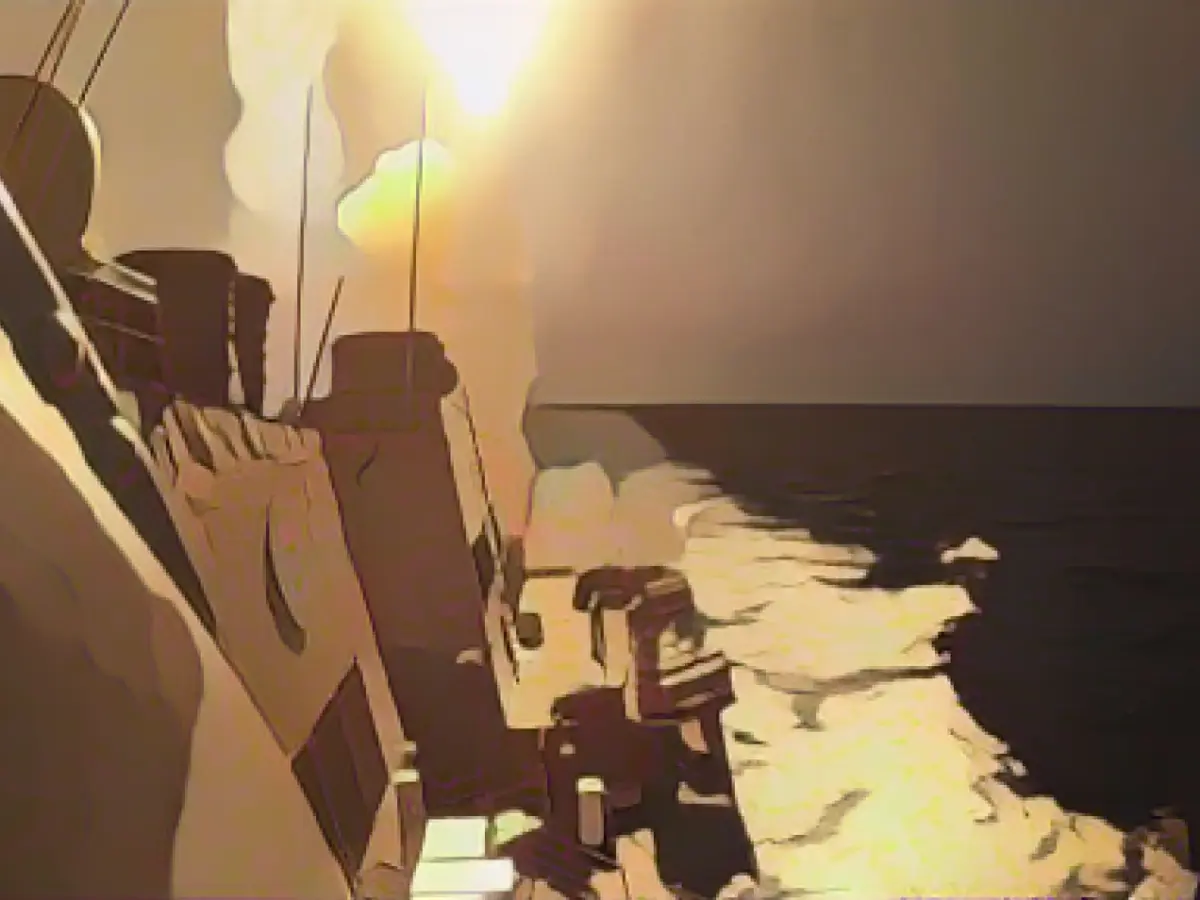Title: Drone Attacks on US Destroyer in Red Sea Raise Alarms
In the international waters of the Red Sea, four incidents including a drone attack on a Bahamas-flagged freighter named "Unity Explorer" were reported by Centcom recently. Remarkably, the "Unity Explorer" sustained minor damage after a missile from Yemen landed nearby.
Connected by the Bab al-Mandeb strait, the Red Sea forms a vital link between the Mediterranean and the Indian Ocean, playing a pivotal role in global maritime trade, particularly for oil transportation. The Panamanian-flagged "Number 9" reported damage from a missile attack in the Yemen region, while the "Sophie II", also under the Panamanian flag, endured some damage but managed to escape significant harm.
The US military asserted that these attacks represent a direct threat to international trade and maritime security, and justified their belief that the Houthis in Yemen are responsible for these incidents, receiving unwavering support from Iran. In response, the US pledged to undertake appropriate measures in collaboration with its international allies and partners.
Claiming responsibility for the attacks on the "Unity Explorer" and the "Number 9", the Houthi militia also targeted two Israeli ships in the Bab al-Mandeb Strait using a missile and a drone after issuing warnings. The Israeli ships managed to escape unharmed, as reported by the militia on online networks.
Notably, Houthi militia vowed to continue targeting Israeli ships until the Israeli aggression against the Gaza Strip ceases. Ensuring maritime security has remained a constant challenge, as ambush tactics were previously used against a British freighter sailing under the Bahamas flag. The ship was hit by a missile, compelling the crew to flee to safety.
In view of the ever-escalating regional tension and security concerns, Houthi militia remains a formidable threat to international shipping. Seizing the "Galaxy Leader" and its crew, the Houthi fighters demonstrate their determination to escalate confrontations. Rami Ungar, an Israeli businessman, is the parent company of Ray Car Carriers, which owns the stricken vessel.
Additional Insights:
Multiple US Navy destroyers have attempted to fend off Houthi drone attacks in the Red Sea, employing both kinetic (such as the USS Stockdale's five-inch deck gun) and non-kinetic (like the USS Mason and USS Gravely's electronic warfare and other non-munitions-based engagement techniques) measures. Nonetheless, the Houthis have launched over 140 attacks on commercial vessels and targeted US Navy warships over 170 times, causing significant disruptions and increasing insurance and freight fees.
The dual-edge threat of Houthi drone attacks has also resulted in mistakes, such as mistaking a Belize-flagged cargo ship for a British one and attacking an Irish-owned oil tanker following erroneous information. Furthermore, Iran's support has furnished the Houthis with advanced weapons including ballistic and cruise missiles as well as long-range drones, thereby intensifying the conflict.
To address these threats, international cooperation is essential. The US and its allies should invest in advanced detection and intelligence-sharing technologies, maintain a coordinated naval presence, impose stringent sanctions on Iran, and form coalitions with Red Sea nations to align defensive measures. Ultimately, regional security hinges on these collaborative efforts and sustained vigilance to protect global maritime trade.








